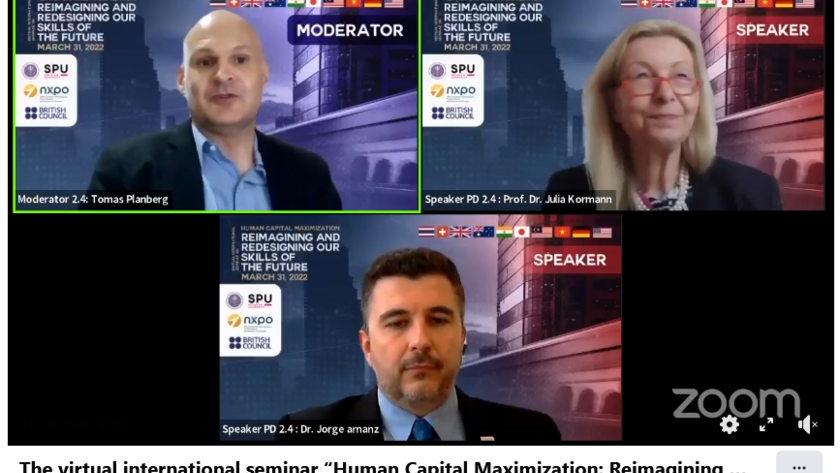Climate crisis, corona pandemic, technological disruption - the world is in upheaval, and with it our working environments and education systems. Universities in particular are currently facing the urgent challenge of adequately educating the new generation for the working life of the future. Scripatum University in Bangkok, together with the Thai Ministry of Higher Education, Science, Research and Innovation (TSU), invited participants to discuss this issue at an international online seminar entitled "Human Capital Maximization: Reimagining and redesigning our skills of the future". Representatives of higher education institutions from Asia, America, Australia and Europe took the opportunity to discuss the work of the future and the skills required for it, and to share their knowledge and experience regarding a development of human capital in the higher education context.
Tomorrow's world of work begins in today's higher education system
Insight into the German higher education system and HNU's educational mission - to shape internationally experienced, solution-oriented thinkers and responsible future shapers - was provided by Vice President Prof. Dr. Julia Kormann in the panel "Lessons learned in 'Europe'". In the joint discussion, Prof. Dr. Kormann and a representative of the Swiss higher education system identified similarities and differences in the respective education systems and explored transferable approaches in the development of human capital. Kormann emphasized the absolute necessity of facing the questions of the future together: Current challenges cannot be dealt with by science on its own; rather, they require a joint, cooperatively developed solution by business, science, society, politics and the media. This perspective shapes the current self-image of the German higher education system and diffuses the boundaries between research, teaching and transfer at universities of applied sciences. In view of the rapid and disruptive developments of the present, this panel concluded, it is essential to anchor the teaching of competencies for shaping the future globally in the higher education system.
More information
A recording of the virtual seminar is available at the following link: https://www.facebook.com/SPUsripatumuniversity/videos/3087883831473228.
Contact
Prof. Dr. Julia Kormann, Vice President for Teaching and Learning, Sustainability







